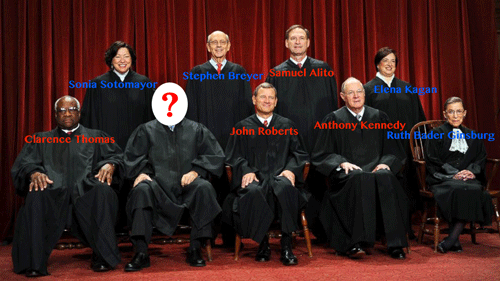North Carolina House Bill 2 (aka, “HB2â€, or the “Public Facilities Privacy & Security Actâ€, or simply “the Bathroom Billâ€), which  among other things prohibits transgender people from using the bathroom designated to the sex of their identity, is going to force another step forward in civil liberties.
Four years ago, in the 2012 gubernatorial election season, the North Carolina General Assembly, controlled by Republicans, passed North Carolina Amendment 1 (aka, “SB514â€, or “An Act to Amend the Constitution to Provide That Marriage Between One Man and One Woman is the Only Domestic Legal Union That Shall Be Valid or Recognized in This Stateâ€), which called for a public referendum on the issue of constitutionally banning same-sex marriage.
From its inception, this bill was doomed to have no long-term relevance; it was cast in the mold of the polemical 2008 California Proposition 8. Already, the battle lines were being drawn for the national legalization of same-sex marriage: the military’s restrictive “Don’t ask, don’t tell†policy had been repealed, and the Department of Defense was permitting military chaplains to perform same-sex marriage ceremonies; President Obama had announced his support for marriage equality; challenges to Prop 8 were wending their way to the Supreme Court; and public polling indicated that a slender-but-growing majority of Americans approved of same-sex marriage. Predictably, in July 2014, the 4th Circuit U.S. Court of Appeals overturned an equivalent bill in Virginia, declaring it unconstitutional, thus nullifying NC’s Amendment 1. Why did NC legislators waste so much time, money, and energy on a bill they had to know wouldn’t last?
Because this was about more than just the bill itself. It was a dog whistle, or maybe a bullhorn, to rally conservatives around the state to come to the polls. A well-funded campaign of anti-marriage-equality groups spread across rural NC, especially conservative Christian groups, from the famous evangelical pastor Reverend Billy Graham, to two NC Roman Catholic bishops, to the Christian-funded Vote for Marriage NC, to the pulpit activism of ministers around the state. The message wasn’t just “vote for Amendment 1â€, it was “vote for conservativesâ€; Representative Mark Hilton (R-Catawba) said, “One of the issues [conservative groups] have come to me about is the marriage amendment. It’s important to the conservative groups that we get this passed this year because they need that to be able to get their ground game working to get the maximum effect to get out the vote.†It was a heavily divisive issue, one that played to the deepest emotions of conservatives, and the public debate energized the voters, and helped usher in a new conservative Republican governor, Pat McCrory, after 20 years of fairly progressive Democratic governors (and a longer history of less-progressive Democratic governors before that).
So, is it really a coincidence that 4 years later, in the 2016 gubernatorial election season, the North Carolina General Assembly, controlled by Republicans, passed a bill that limits the rights of a gender minority? Or that some of them are calling for a public referendum? Or that they diverted $500K from the state’s Emergency Response and Disaster Relief fund to defend the fore-doomed HB2 in court against the U.S. Department of Justice, maintaining the controversy and the press for the next several months until the November election? I don’t think it will have the saving grace for Pat McCrory that it did last time, however; it’s already cost the state millions of dollars in revenue, and it’s made us an international laughing-stock.
Like Amendment 1 before it, HB2 is destined to be overturned, a footnote in history. But in the meantime, it’s causing real harm to real people; phone calls to Trans Lifeline, the nonprofit transgender crisis hotline, doubled after the passage of HB2; and some bigots feel emboldened to mock or even harm transgender people in the name of this law. This must have been profoundly disappointing for the human rights activists in Charlotte who’ve spent years working to make NC more inclusive, and who scored a victory with the Charlotte City Council with the passage of Charlotte Ordinance 7056 (aka, “An Ordinance Amending Chapter 2 of the Charlotte City Code Entitled “Administration”, Chapter 12 Entitled “Human Relations”, and Chapter 22 Entitled “Vehicles for Hire”â€), only to have it struck down at the state level by HB2. So, why am I praising HB2, rather than Charlotte Ordinance 7056?
Because, as good as the intention was behind Charlotte Ordinance 7056, if left unopposed, it would have had minor and purely local effect, rather than the transformative societal effect of HB2.
California’s Prop 8, banning same-sex marriage, was the critical event that made same-sex marriage legal across the entire US, in three notable ways:
- The public debate forced people to form an opinion on the issue, and when pressed on it, most people decided that either they were in support of marriage equality or that it simply wasn’t their business to dictate what other adults did;
- It inspired contrary legislation in several other states, legalizing same-sex marriage there;
- It forced the issue to be resolved in the courts, rather than the timid Congress.
Federal laws are made in two ways in the USA; either they are enacted by Congress; or they are decided as interpretations of the Constitution by the Supreme Court (or its lower district courts). Though same-sex marriage was trending upward in favorability among Americans, it would likely have been decades before Congress would have acted on that; members of Congress are too afraid of strong action on contentious issues, lest it endanger their reelection; and no single party is likely to have a clear mandate to act unilaterally for the next several elections. (A cynical view might assert that controversial issues –like same-sex marriage, gun control, health care, and abortion– are kept unresolved so the parties have strong, emotional differentiators to garner voters, but I prefer to ascribe it to simple inability.) So, the courts brought in marriage equality at least a decade, and probably much longer, than would have been possible from Congress. And this has been a huge step forward in civil rights, positively affecting hundreds of thousands of lives, and giving millions of people their dignity.
And these laws do more than just determine how people are treated by the government. They set a normative expectation among the public. Same-sex marriage is enjoying more popular support now not only because the law reflects how people feel… people feel differently because of the law itself. At their best, laws are a reflection and reinforcement and declaration of shared social values.
So ask yourself, and be honest: Were you concerned about the rights of transgender people a year ago? Were you inspired to march in the streets, attend rallies, or even post on social media about it?
I wasn’t. Sure, if you’d asked me, I would have said truthfully that I thought transgender people should have the same rights as others. But I wouldn’t have felt that strongly about it.
And then HB2 happened. In my state. And I was forced to form an opinion.
And I took to the streets.
Because, who are we, as a state? Who am I, as a citizen? I’ll tell you, clearly, in the face of legal claims by representatives of my state government: “We are not this.â€
We are not punching down. We are not petty. We are not oppressive. We are not exclusionary.
Still, if same-sex marriage was yet decades away, how long in the future were transgender rights? How many years and how many lives until we cared?
But now, around the country, around the world, people are defiantly defining themselves by what they are not, on an issue that had not even been on their radar: “We are not this.â€
I may not know much about law, but I know what I don’t like.
“We are not this.â€
I can’t predict if HB2, this bigoted bill, will help conservatives maintain control of the North Carolina state government for another term. But I do know its one inevitable effect: however hurtful it will be for transgender people in its short life, and though some of those affected may not live to see the long-term benefits, it will give transgender people their legal dignity ever after.
So, self-styled “social conservativesâ€, keep bringing us hateful, hurtful laws. Keep pushing against the tide of history. Keep forcing us to form an opinion. Please.


